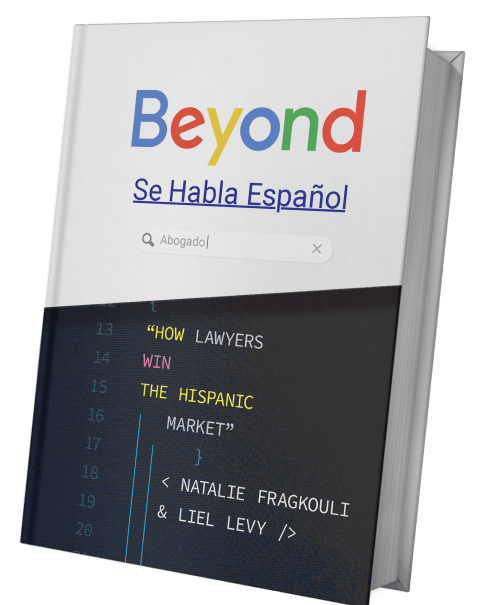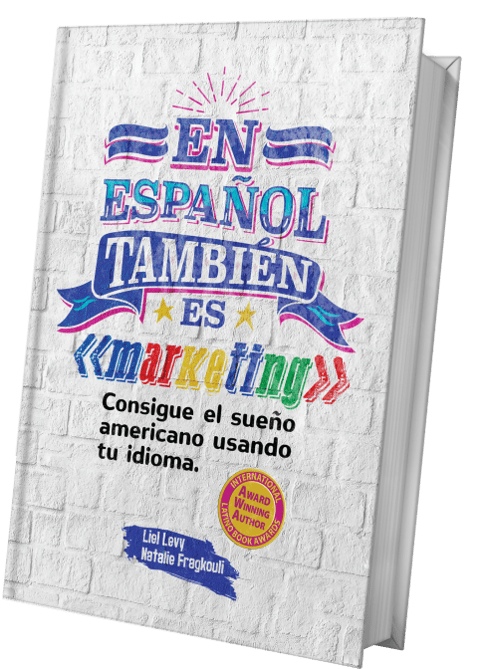Does your law firm handle Workers Compensation cases? This guide gives you 7 simple, effective, and actionable tips that will help you increase your caseload.
Carefully optimized and executed PPC campaigns is the best way to increase your Workers Comp cases and maximize your Return On Digital Marketing Investment. By running WC Google Ads for high intent keywords, you can target searchers who require your law firm’s services. What’s better (and more profitable) than getting in front of the prospective clients that matter? Things, however, can go wrong, and you might end up wasting your precious marketing dollars if your law firm’s PPC campaigns are poorly executed and not optimized for your particular industry and needs. Your niche, your services, require the proper setup, messaging, and several other factors that will make your WC PPC campaigns stand out and yield exceptional results. In this article, we’ll guide you through the seven more effective tips for your success with legal PPC.
1. Use and optimize landing pages.
Landing pages are standalone web pages that you create for the specific needs of a marketing or advertising campaign. A lot of law firms and advertisers make the mistake of sending their traffic originating from paid Ads to their homepage or other pages such as practice areas. Is that good enough for your Workers Comp PPC campaigns? Let’s find out through an example. Consider that your law firm invests in Google Ads and targets high intent keywords, one of them being slip and fall attorney near me. Depending on your location, this click can cost significantly over $100. If you are sending your traffic to your main website, you risk losing them in the process. Your prospective clients, instead of calling you, might end up reading additional information, visiting your social media, and at the end of the road ending up checking his friends’ stories on Facebook. On the other hand, if you drive your paid traffic to a landing page, you are looking at no distractions that will potentially increase the risk of a click that didn’t convert.
Using a landing page is just the first step to success, but it can be of limited use if you don’t optimize it.
- Your landing pages should be fast. We suggest you look into AMP pages.
- You should keep your Ad copy, keywords, and landing page content consistent. If you are running a slip and fall campaign, you should carefully craft your Ad copy, and your landing page should only contain related information. The prospective clients will understand that they found what they were looking for and will be more likely to call you or fill out a form.
- Don’t forget to design your WC landing pages with the mobile searcher in mind. Mobile searches show high intent, and if your landing page is not mobile-friendly, you might miss out on a new case.
- A/B test your landing pages for user experience and conversion.
2. Work on your keywords and negative keywords.
Again, this is a two-step process. Firstly, you need to research your competitive environment and identify the most profitable keywords to target. Understand what shows high intent, identify potential opportunities that remain uncaptured (lower CPC, for example), and monitor your competitors’ performance to single out their most effective practices. If, for example, you research your competitors’ PPC campaigns and you find out that there’s a gap on Google Ads for electrocution cases, while there is significant search volume, then you should consider stepping in and filling this gap attracting relevant cases for your firm.
Hand in hand with your keyword research goes your law firm’s negative-keywords list. These are the terms and keywords that you don’t want to show your ads for, and they are equally important as they help you optimize your campaigns and ensure that your budget is spent on the best-converting keywords.
3. Use the right keyword match type and alter them over time.
Now that we’ve explained the value of finding the right keywords for high intent and the importance of adding negative keywords to your Workers Compensation PPC campaigns, it’s time to understand the match types that you should look into.
- Broad match is the widest option Google provides. It includes all searches that contain your keyword, including synonyms. This type will attribute aims for the highest number of impressions, but you need to be careful not to overdo it as you might end up showing irrelevant ads.
- The modified broad match comes second in terms of width. Compared to the previous category, this match type makes you show your ads for search terms that include all the keywords in any order.
- Phrase match allows you to target the exact phrase (and close variations), with all keywords in the given order.
- The exact match is the narrowest match type. In the past, it strictly contained the matching keyword, but lately, Google relaxed it, to also match close misspellings, the plural version of the search term, and interchangeable keywords.
It is crucial to monitor your Ads performance and decide which specific ad groups require each match type. In some cases, you might want to get in front of as many prospective clients as possible, while in others you might want to narrow it down and only target specific cases.
4. Use all relevant extensions.
In a previous article, we uncovered the added value of Google Ads Extensions for your law firm’s PPC campaigns. For your Workers Compensation Google Ads campaigns, we’d suggest you include the following:
- Call Extension that allows your prospective clients to call you. It can prove to be one of the most beneficial choices you can make and it can help the searchers reach you with a single tap or click.
- Location Extension that shows your office’s location and makes you more approachable to the prospective client.
- Review Extension highlighting your score. Reputation management is a critical component of your WC digital marketing, and reviews represent one of the most prominent steps in the customer journey.
5. Invest in Workers Compensation PPC in Spanish.
Hispanics represent over 18% of the population in the US, and they are often blue-collar workers. This means that Spanish speaking searchers can be your ideal audience for your Worker’s Compensation Google Ads. Apart from the audience’s significant size, we have to mention the lower CPC compared to the same keywords in English. Finally, according to our experience, many law firms miss out on this opportunity, that you can capture with relevantly lower competition and investment.
Tip: Spanish speakers use their mobile devices on average more than English speakers. That makes them potentially high intent searchers, as mobile queries tend to yield higher conversion rates.
Remember that Latinx often use Spanish as their primary language, and they form cultural and emotional bonds based on this. Investing in Spanish PPC for your Workers Comp law firm can be the stepping stone towards capturing a loyal audience.
6. Work on device targeting.
Monitor the trends on device usage and the results you get from each device type. In the past couple of months, desktop gained ground in traffic. On the other hand, mobile queries usually mean higher intent, and thus, you should always have a mobile PPC strategy in place. Our suggestion is to separate your campaigns according to device-level targeting and add the best converting call to action for each. That way, you will attract more qualified leads that increase your chances for more WC cases.
7. Measure your results and track your CTAs.
It’s a fact, you can’t fully optimize your PPC campaigns if you don’t track your conversions, and you don’t measure the metrics that matter. By tracking what your Calls To Action work, you will be able to identify what works best for you and what you need to reconsider. Additionally, by following your performance, you will identify missed opportunities and get the chance to capture them. Finally, it’s an effective way to assess your intake process and evaluate your team’s performance; this will help you maximize your chances to sign more cases from paid ads and improve the customer’s journey with your law firm.
Conclusion:
Google Ads in English and Spanish is an investment for your Workers Compensation law firm. Carefully optimized PPC campaigns can help you increase your caseload and increase your revenue. Remember that every click costs, and counts and therefore, you need to pay attention to your setup and maintenance. These actionable tips are your first steps to success; if you want to dig deeper or have any additional questions, don’t hesitate to contact us.



